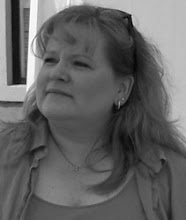 Historic connection the foundation for landmark status
Historic connection the foundation for landmark status01/17/08
By Marcia Ames
The Baltimore County Landmarks Preservation Commission has denied developer Charles Skirven's request to raze the Victor Bloede house in Catonsville.
The Jan. 10 decision gave preliminary landmark status to the 83-year-old house at 110 Forest Ave., site of Skirven's proposed Villas at Eden Terrace development.
He said he was shocked by the decision, as the house is "a shambles" that would require about $250,000 to $1 million to salvage.
Built by the renowned Catonsville chemist and entrepreneur, who lived there until his death in 1937, the building has historical value for its association with Bloede, according to Forest Avenue resident Stephen Lackey, who proposed it as a county landmark.
The case will go next to County Executive Jim Smith and the County Council, which has the final say.
Skirven has a contract to buy the 6.5 acres from its current owner, Lino LaPenna, who lives out of state and did not attend the landmarks commission hearing in the case.
Skirven's Eden Terrace received county approval as a Planned Unit Development last fall, on condition that he design and market the gated, 23-townhouse community to buyers age 55 and older.
Although he still faces a challenge in obtaining building permits for the site because it falls within the boundaries of the Frederick Road and Ingleside Avenue's failing-grade intersection, Skirven can apply for zoning relief to allow construction.
But with the Bloede house a historic landmark, he would need to reconfigure his plans and retain it in the new development.
"It sabotages the plan," he said, adding that he was surprised by Lackey's action in nominating the house as a landmark.
Skirven said he had worked for some months to reach agreement with Lackey on an alternative, such as a plaque on the site honoring Bloede.
"Steve just came out of left field with this," Skirven said.
The house has no historical significance architecturally, according to Skirven's attorney, Dino La Fiandra.
Furthermore, landmarks commission member Qutub Syed had inspected the house and recommended it for demolition.
"It does not look like it is structurally safe," Syed said at the hearing.
Catonsville historian Marsha Wight Wise and Ruth Mascari, a former member and chairwoman of the commission, supported Lackey's assertion that the house is associated with a historically significant person.
Under county guidelines, that condition alone qualifies a structure for landmark consideration.
A stamp collector since childhood, Lackey told the commission he was impressed by Bloede's reputation for inventing and patenting the first adhesive used on postage stamps.
He described Bloede as an entrepreneur and developer as well as a chemist and inventor, whose many achievements include Eden Terrace, the Catonsville neighborhood that includes Forest Avenue, and the first power plant that supplied electricity to the area.
Bloede is credited with the development of Bloede Dam on the Patapsco River in Catonsville, which housed an electrical generator thought to be the first of its kind, Wise said.
Under county guidelines, the County Council will hold a public hearing before deciding the Bloede case. The hearing has not yet been scheduled.
Skirven said he did not know what he would do if the final decision goes against him.
"We are looking at all the options," he said.
E-mail Marcia Ames at Marcia Ames@patuxent.com




